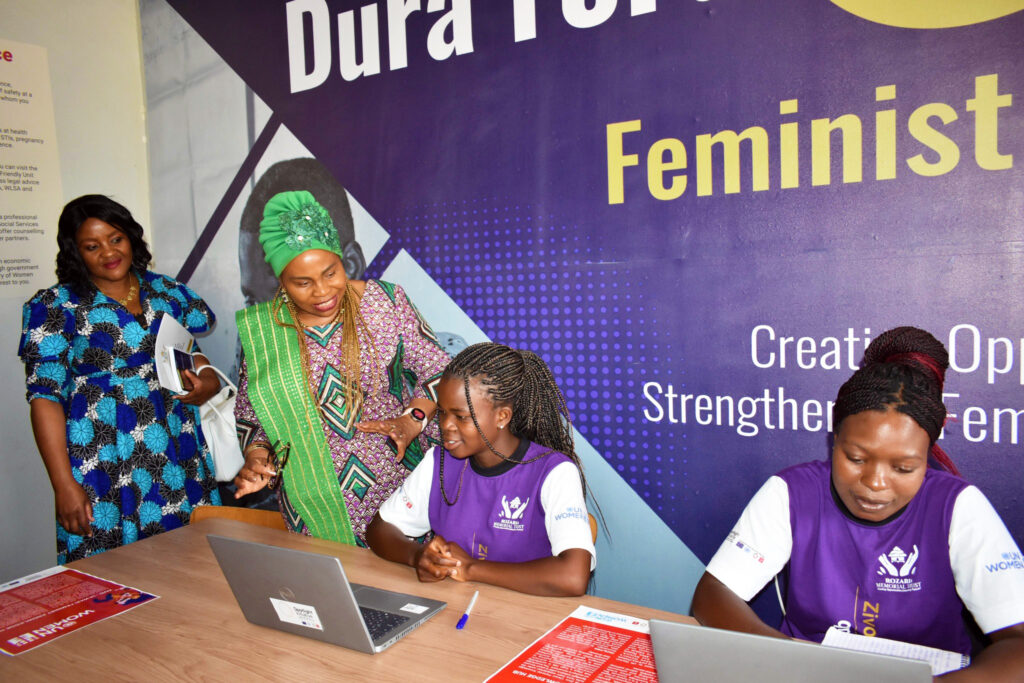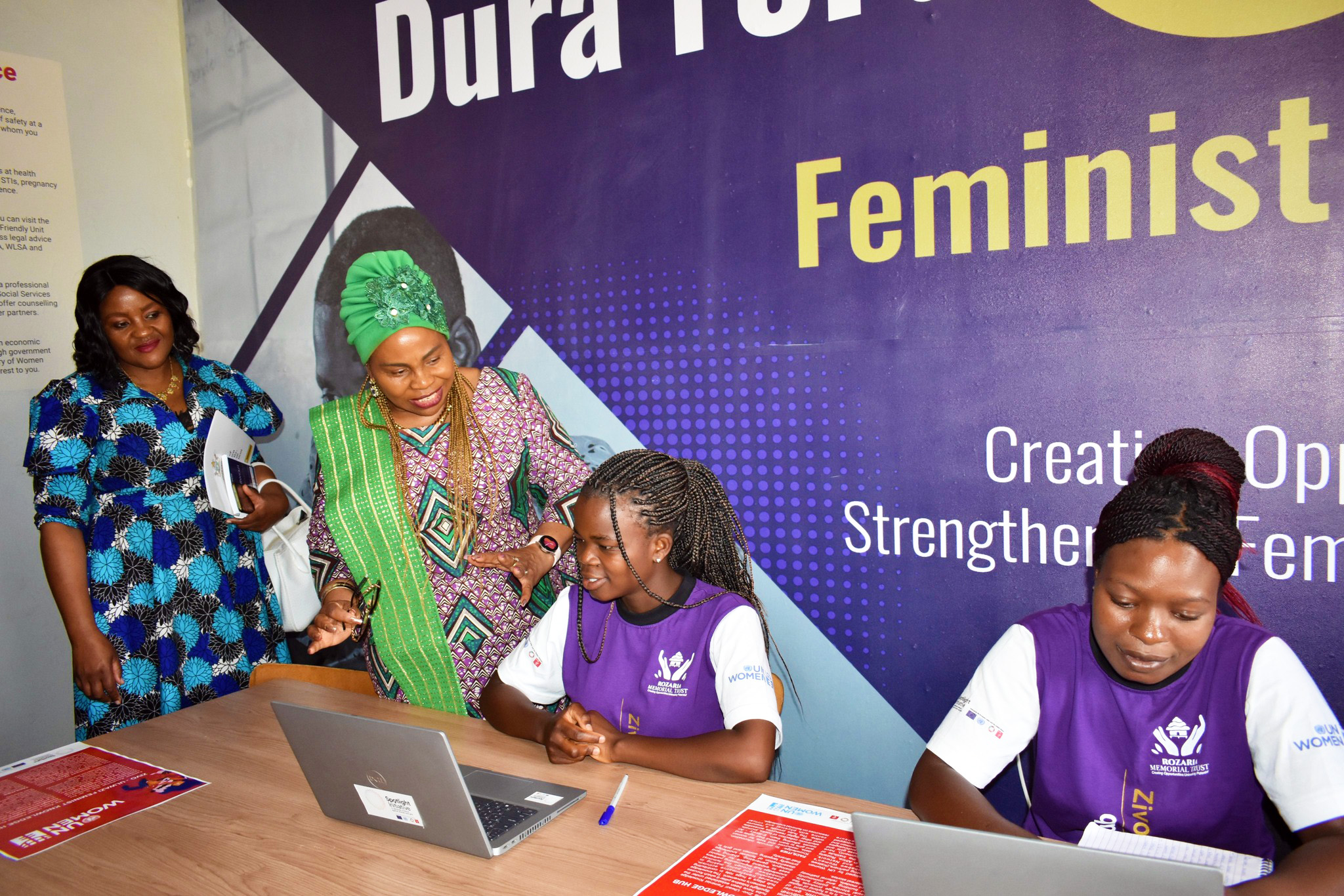“Education for all children in Africa: the time is now.” The resounding theme for this year’s Day of the African Child (DAC) underscores a critical human right. All children, regardless of geographic location, race, parental status or gender, deserve access to quality education. We must celebrate the progress made by African governments towards this goal, while acknowledging the work ahead in attaining, education for all.
About the Day of the African Child
Each year, on June 16th, we celebrate the Day of the African Child (DAC). This day honours the 1976 Soweto Uprising in South Africa, where students bravely protested for quality education and the right to be taught in their own languages. The DAC serves as a powerful reminder of the ongoing quest for educational equity for all African Children, especially those in rural communities.
Working with Rural and Marginalised Communities
Rozaria Memorial Trust (RMT) is a community-rooted organisation, in Murewa District, Zimbabwe. For over 10 years, they have partnered with rural and marginalised communities across Mashonaland East and Central Provinces. Through their Educational Assistance Program, RMT works with traditional leaders, local schools, and the wider community to support the government’s efforts in education, particularly for girls who are orphans, vulnerable, and facing gender-based violence.
In rural Zimbabwe, limited resources and the ongoing digital transformation create challenges for girls seeking a quality education. The changes accentuate the need for additional support to ensure girls in rural communities can develop the necessary digital literacy skills alongside a strong foundation in core subjects. This ensures they have the opportunities to succeed in the evolving job market.
The Lived Realities on Access to Knowledge and Education
Despite strides towards right to education, rural communities face limitations in ensuring a conducive learning environment for girls like *Chipo, a student in the RMT Educational Assistance Program.
“There is no electricity at home and studying with candles is impossible, even if I had a laptop, I wouldn’t be able to use it to study after dark. I have heard that there are internet cafes in Harare, but in my village, there is no such facility to help me revise on topics I do not understand,” shares 15-year-old Chipo.
Limited access to technological infrastructure and equipment hinders learning for students and efficiency of teachers. As *Isaac Chikomo, a school principal in Murewa District, emphasises,
“We do not have computers or laptops for the children. Even for teachers, there is only one laptop shared amongst several of us.”
Quality education is important in rural communities for breaking cycles of poverty, violence against girls and young women and achieving gender equality. Rozaria Memorial Trust recognizes a critical gap: the education system in Africa needs to adapt to the evolving technological context to ensure all children have access to quality education.
Community Solutions and Holistic Learning
Education extends beyond the classroom walls and textbooks. Learning should be dynamic, adapting to students’ evolving capacity and promoting critical thinking skills. This is of great importance, especially in rural communities where out-of-school support and reinforcing human rights education are critical aspects of a holistic approach to learning.
Dura reruZivo Feminist Knowledge Hub

Education extends beyond classrooms. The Rozaria Memorial Trust’s Dura reruZivo-Ulwazi Feminist Knowledge Hub bridges this gap, particularly for human rights education in rural communities.
Made possible with support from UN Women through the Global Spotlight Initiative, Dura reruZivo offers diverse resources. The information repository on gender equality, Information Communication Technology and the gender-based violence referral pathway, complements the in-school curriculum.
The facility is providing a comprehensive approach for girls like Chipo. Previously, limited access to digital tools and power supply hindered her ability to study beyond school hours. Now, thanks to the Hub, which is powered by solar-energy, Chipo is not only gaining valuable computer skills but also learning how violence at home can impact her education. Empowered by this knowledge, she feels more comfortable confiding in teachers when facing challenges at home.
“Dura reruZivo is a dream come true,” Chipo shares. “The ICT trainings are helping me learn to use a computer and understand how violence at home can affect my studies. Now I am more open with my teachers when things get tough at home.”
Safeguarding Education through Community-rooted Solutions
Education can be disrupted when a child or their mother experiences abuse or violence. This can force them to leave their homes, sometimes even their communities, impacting their ability to attend school. To help address such challenges, Rozaria Memorial Trust is tackling this using innovative community solutions that complement in-school education and highlight the importance of human rights education.
Nhanga: Empowering Girls to Stay in School
Violence against girls and women, including child marriage, can disrupt their education in devastating ways. Innovative community solutions like Nhanga and Dendere, are bridging the gap and ensuring girls’ continued access to education in case of disruptions.
Nhanga goes beyond providing a safe space. It equips girls with the knowledge and confidence to navigate challenging situations, including violence, by offering counselling and mentorship programs. This holistic approach equips them to prioritise their education and thrive, while also complementing the in-school curriculum by encouraging girls to stay in school.
Nhanga provides guidance and support for girls who may have dropped out of school due to child marriage. Through partnerships with organisations such as Masana waAfrika, IM Swedish Development and HIVOS, the RMT Educational Assistance program is providing children with learning materials, psychosocial support and guidance to navigate the government’s re-entry policy as young mothers.
Beyond providing safe spaces and educational support, RMT also promotes leadership skills among girls. One such success story is *Sarah, a 17-year-old participant in Nhanga sessions. Through trainings on human rights and gender equality, including the opportunity to self-represent at policy influencing spaces such as the African Union Girls Summit and the UN Commission on the Status of Women, she gained confidence to speak out on child marriage in her community. With support from RMT, Sarah is mobilising other girls to advocate for their right to education and a life free from violence.

Dendere: Supporting Education Through Emergency Shelter
When a mother seeks emergency shelter at Dendere – a safe shelter for survivors of gender-based violence, access to education for their children can be disrupted. If there are no relatives nearby to look after the children, mothers are often forced to send their children far away while matters are resolved at the courts.
In such circumstances, children can access a familiar learning environment through diverse facilities at RMT Education and Counselling Centre. The library carries age-appropriate books similar to those found in schools, resources from Nhanga sessions and the Dura reruZivo Feminist Knowledge Hub, complement educational efforts in rural communities. These services help maintain a familiar learning environment and ensures that children do not lag academically during unexpected disruptions. *Tatenda, an aspiring lawyer and student from Shamva District says,
“I am proud of myself for leaving an abusive child marriage, RMT offered me a lifeline when I needed it most. The educational assistance program helped me heal and refocus on my education through counselling muNhanga. I look forward to completing my degree so that I can give back to my community because so many girls need educational opportunities like the one, I received.”
By ending violence against women, we unlock a ripple effect: improved access to quality education, gender equality, and better mental health and wellbeing for children as they learn.
Dakar Declaration and Digitalisation for Girls’ Education in Africa
The Dakar Declaration on Assessing Learning Losses to Embrace Learning Recovery for African Girls [1] emphasises the critical role of digital transformation in education due to the Covid-19 pandemic. It aligns with the goals of Agenda 2063, the Continental Education Strategy for Africa (CESA 16-25), and Sustainable Development Goals 4 and 5, highlighting the importance of education for achieving gender equality and people-driven development.
RMT exemplifies a holistic approach that complements the Dakar Declaration’s emphasis on digital transformation. While digital access in rural communities remains a challenge, RMT recognises the importance of building a foundation for future digital literacy.
Through leveraging community innovations like the Nhanga safe space, Dendere, and Dura reruZivo Feminist Knowledge Hub, RMT is providing a supportive learning environment for girls facing educational disruptions. These initiatives address the call in the Dakar Declaration, for increased education budgets by African governments and partners, demonstrating that education for all requires a multifaceted approach.
Effective solutions, to ensure girls’ access to education requires a combination of technology and community-driven support, achieved by analysing social and economic factors that can disrupt their education.
Digitalisation
Investment in public-private partnerships, as exemplified by RMT’s community-driven initiatives, is essential for equipping schools in rural communities. Providing appropriate technological infrastructure, including computers with reliable internet access and exploring alternative learning resources like solar-powered tablets, can ensure students have access to quality education regardless of their location.
To truly attain education for all in Africa, governments and partners must also take into account the devastating impact of violence against women on children’s education and wellbeing.
On this Day of the African Child, let us remember the urgency of the theme. The time is now! Everyone has a part to contribute towards the education of all children, especially girls. The time to lobby governments to prioritise digitalisation in a holistic manner that addresses social issues, is now! Creating a safe and supportive learning environment for girls has a ripple effect, benefitting entire communities. Therefore, invest in education, today. Share this story, raise awareness and together, let us create a brighter future for children in Africa.
